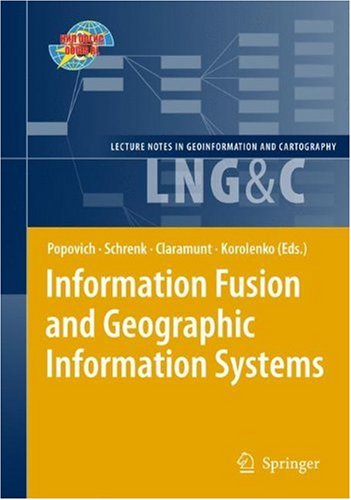

Most ebook files are in PDF format, so you can easily read them using various software such as Foxit Reader or directly on the Google Chrome browser.
Some ebook files are released by publishers in other formats such as .awz, .mobi, .epub, .fb2, etc. You may need to install specific software to read these formats on mobile/PC, such as Calibre.
Please read the tutorial at this link: https://ebookbell.com/faq
We offer FREE conversion to the popular formats you request; however, this may take some time. Therefore, right after payment, please email us, and we will try to provide the service as quickly as possible.
For some exceptional file formats or broken links (if any), please refrain from opening any disputes. Instead, email us first, and we will try to assist within a maximum of 6 hours.
EbookBell Team

4.7
66 reviewsThis volume contains the papers presented at the International Workshop “Information Fusion and Geographic Information Systems” (IF&GIS’09) held in St. Petersburg, Russia in May 2009. The workshop was organized by the St. Petersburg Institute for Informatics and Automation of the Russian Academy of Sciences (SPIIRAS). The workshop continues a series organised biannually, and attracts academics and industrials from a wide range of disciplines including computer science, geography, statistics, mathematics, hydrography, geomorphology, and environmental sciences. The objective of this workshop is to provide a forum for innovative research oriented towards Geographic Information Science and tech- logies and Corporate Information Systems whose close association highlight novel theoretical and practical challenges. The papers selected by the International Program Committee cover a wide range of innovative areas including ontological and semantic approaches for the representation of geographical data, geographical data monitoring, situation management and forecast, to emerging applications oriented to the maritime environment, disaster management and security threats. While traditional topics of GIS conferences are well represented and still being advanced, several new domains appear and stress the need for the development of versatile monitoring systems and decision making systems. While GIS already have a de facto standard for geographical monitoring and analysis, the papers accepted in this volume also illustrate several novel directions of application whose objective is more closely oriented to process modeling and decision making, and where the nature of the objects represented is revisited using ontological and semantic approaches.